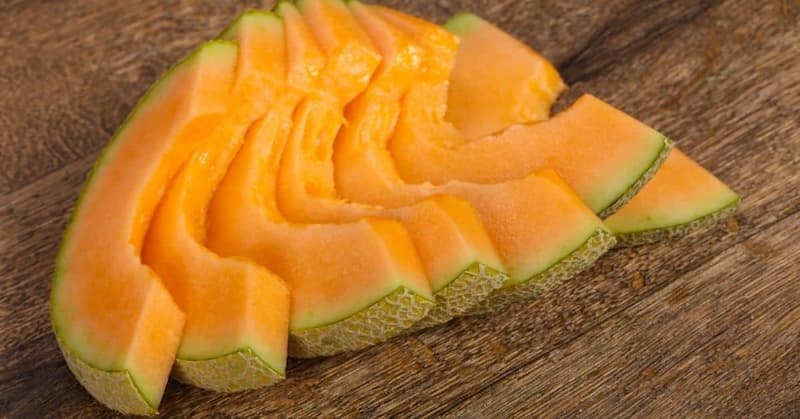Can you freeze cantaloupe? YES!
Cantaloupe pieces should be preserved in freezer bags. Cantaloupes can be frozen and kept for up to 6 months if frozen properly. Frozen cantaloupe is a great option if you need a quick meal or snack. They’ll taste just as good frozen as they did when they’re fresh for up to six months.
It’s brilliant to sell your used car using Junk my Car and earn some quick cash. The procedure is quick, the service is free, and you can troubleshoot with the assistance of a whole staff; you can even ask them for assistance with documentation problems.
Please continue reading for more information.
Table of Contents
Cantaloupes Can Be Frozen, Right?
Cantaloupes can be frozen. They are served cold for the best flavor. They are 90% water, which means they are well hydrated and are not difficult to freeze.
The best cantaloupes to freeze are those that were not watered for a week prior to harvest. This would enhance the cantaloupe’s inherent sweetness. Additionally, the flesh would be more firmly anchored.
It should be frozen fresh to preserve the cantaloupe’s sweetness. A distinctive webbed yellowish rind can be seen on a fresh cantaloupe. Fruit that is overripe has a decaying rind and a dark yellow color.
Their skin should be rinsed before opening to prevent bacterial growth. Bite-sized pieces of the flesh must be cut from it. When selecting which flesh to include, those with the most vivid colors are given preference.
With or without syrup, this fruit can be frozen. Sugar helps to maintain the original sweetness and color. Freezing without sugar might produce a less appetizing flavor.
Chunks of cantaloupe should be frozen and kept in freezer bags. Cantaloupes can be frozen to extend their shelf life by up to six months when kept properly.
Cantaloupe that has been frozen is the best option if you need a quick lunch or snack. They won’t lose any flavor if you freeze them for up to six months; they’ll still taste just as good as fresh. It’s time to start freezing your favorite fruits if you want to spend less on groceries while still getting the same flavor.

How To Freeze Cantaloupe?
Preparing Cantaloupe For Freezing
The cantaloupes should be frozen after harvesting, making sure to wash them thoroughly in cool water to get rid of any dirt, dust, or bacteria. Then, cut the melons in half and scoop the seeds out of the center. Then carefully cut the rinds away from the flesh.
The cantaloupe’s yellowish red flesh can then be chopped into bite-sized pieces. Following that, you’ll place the chunks in freezer bags and top with a little icing sugar. Their beautiful color and mouthwatering melon flavor will be preserved thanks to the sugar.
Washing The Fruit & Removing Seeds
Wash the fruit with soap and water before freezing cantaloupes, especially if the rind has any dirt. The fruit should now be cut open. The surface doesn’t need to be perfectly smooth; just take out the seeds. Some grooves may be left in place. Remove the rind and slice the flesh. The area between the orange flesh and rind that is bright green and has a tart flavor should be removed.
Placing Pieces On Lined Baking Tray
A baking sheet should be filled with the cantaloupe pieces. It is simpler to remove the frozen pieces if the tray is lined with wax paper, parchment paper, or plastic wrap first.
Quick Freezing
To quickly freeze the cantaloupe, put the tray in the freezer.
Packing In Freezer Bags
Pack the frozen pieces into containers or freezer bags once they have solidified. Try using a straw or vacuum sealer to remove air from bags. You can also immerse the open bag in water while leaving the open end above the surface. Air bubbles in the bag are quickly forced out by doing this. To avoid adding air again, close the bag while the contents are still submerged.
Stopping now to think about possible uses for the frozen cantaloupe is a good idea. Put pieces in smaller zipper bags, then place those in larger freezer bags if you want to pack it in lunch boxes as a snack. An excellent snack for people with colds or sore throats is frozen cantaloupe chunks.
Puring Your Cantaloupe Before Freezing
Some people puree cantaloupe before freezing it, then freeze the puree in ice cube trays, then place the cubes in freezer bags. Fruit teas or wine spritzers can be chilled with the cubes. To make a tasty fruit compote, you can also freeze cubes of cantaloupe, watermelon, and honeydew. Eat frozen watermelon chunks or puree within nine to twelve months for best quality.
Cantaloupe Advantages
An energy-dense, low-calorie snack or meal is frozen cantaloupe. It has a lot of vitamin C and A, is low in fat, and has anti-inflammatory and antioxidant properties. It’s a delicious addition to sorbet and iced beverages, as well as to mineral water. It also makes delicious smoothies. Additionally, it can be used to make both traditional and virgin margaritas and daiquiris.
Conclusion
Use an airtight container and keep cantaloupes from staying frozen for longer than six months when storing them in the freezer. Ice crystals will be less likely to form on the surface of the cantaloupe if it is wrapped in plastic wrap before being put in a sealed bag. Remove the packaging from the cantaloupe before placing it in a bowl or other dish that has been loosely covered in plastic wrap to thaw it. After it has thawed, the fruit can be consumed.
Cantaloupe freezing was the topic of the post. Do you now understand that cantaloupe can be completely frozen from this post? If you have any questions, kindly post a comment. I’ll make an effort to respond. Thank you.





